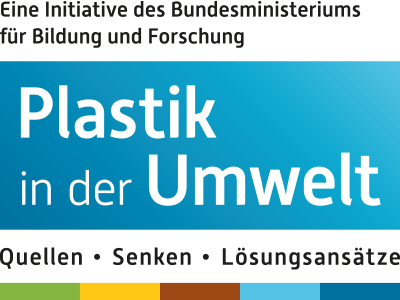Innoredux
Innoredux

Dr. Frieder Rubik
Institute for Ecological Economy Research (IÖW)
Bergstraße 7
69120 Heidelberg
Phone: +49 6221-64916-6
e-mail: frieder.rubik@ioew.de
The idea and goal of Innoredux was to develop and implement innovative packaging solutions in distance and stationary retailing using a living lab research approach in order to avoid or reduce plastic waste along the value chain.
The subject of investigation and the focus of research were innovations in trade for waste prevention and reduction within the framework of business models and the underlying value chains. The potential of their expansion from niches into the mainstream was investigated. The project focussed on reduction measures through a more efficient use of materials, substitution (alternative ecologically compatible materials) and through influencing consumers' decision-making behaviour in purchasing. Such innovative reduction measures can contribute significantly to the reduction of plastic discharges into the environment and at the same time generate competitive advantages.
In a living lab in the city of Heidelberg, business models were tested and implemented in cooperation with a number of partners from the retail sector and civil society. On the basis of the results of the living lab, guidelines for municipalities and companies were developed. The project focused on four product groups: food, cosmetics, office supplies and textiles.
Main areas of work
- Analysis of interdependencies and decision-making processes along the value chain (production - trade - consumption)
- Development of innovative business models to avoid packaging
- Testing of innovative approaches for low-plastic packaging in a living lab in Heidelberg
- Balancing the ecological, economic and social impacts of the business models identified as innovative
- Development and dissemination of guidelines for companies and municipalities
WP 1 Developing a typology of plastic waste prevention business models through innovative packaging solutions
Contact person
Dr. Frieder Rubik, Institute for Ecological Economy Research (IÖW), Bergstraße 7, 69120 Heidelberg
e-mail: frieder.rubik@ioew.de
Project partners
ifeu, Alnatura, Annas Unverpacktes Heidelberg, Avocado Store, dm, Memo, Unverpackt e. V., Zalando
Short description
In a first step, existing business models that contribute to the reduction of packaging (especially plastic packaging) along the value chain were examined and categorised. The project partners analysed existing innovative, instructive and plastic-reducing solutions with a strong leverage effect and estimated the reduction potential via quantity balances (waste types, waste quantities, etc.).
WP 2 Balancing, identification of best practices and success factors
Contact person
Dr. Pauline Riousset, Institute for Ecological Economy Research (IÖW), Potsdamerstraße 105, 10785 Berlin
e-mail: pauline.riousset@ioew.de
Project partners
ifeu, Alnatura, Annas Unverpacktes Heidelberg, Avocado Store, BUND, BUND Heidelberg, dm, Memo, City of Heidelberg, Unverpackt e. V., Zalando
Short description
This work package analysed the ecological, social and economic impacts of business model innovations and identifies their success factors. To this end, key data and model examples were collected as preparatory work for the company checklists and the handbook for a municipal concept for comprehensive plastic prevention and reduction (so-called "conceptual handbook for municipalities"; WP 4). The potential impact of municipal support was assessed.
WP 3 Design of options for action and testing in a living lab
Contact person
Dr. Frieder Rubik, Institute for Ecological Economy Research (IÖW), Bergstraße 7, 69120 Heidelberg
e-mail: frieder.rubik@ioew.de
Project partners
ifeu, Alnatura, Annas Unverpacktes Heidelberg, Avocado Store, BUND, BUND Heidelberg, dm, Memo, City of Heidelberg, Unverpackt e. V., Zalando
Short description
This work package included the implementation of a living lab with retail companies, the City of Heidelberg, BUND and consumers. Here, a strategy to reduce plastic waste, consisting of suggestions to improve business models and support from municipalities, was developed and tested.
Case studies: A living lab was conducted, i. e. a geographically and temporally defined testing area was created in which knowledge was exchanged, strategic partnerships were generated and solutions were tested. Together with the associated partners, the objectives and intention of the intervention/experiments and questions were defined (co-design) before options for action were developed and adapted and tested in a strategy for the local context of Heidelberg. The effects of the living lab were evaluated during the process.
WP 4 Strategy development and development of company checklists and conceptual guidelines for municipalities
Contact person
Dr. Pauline Riousset, Institute for Ecological Economy Research (IÖW), Potsdamerstraße 105, 10785 Berlin
e-mail: pauline.riousset@ioew.de
Project partners
ifeu, Alnatura, Annas Unverpacktes Heidelberg, Avocado Store, BUND, BUND Heidelberg, dm, Memo, City of Heidelberg, Unverpackt e. V., Zalando
Short description
The living lab results from WP 3 were transferred into the context of the considered product groups and the existing strategies are revised. The research results were used to develop company checklists and a conceptual handbook for municipalities and the dissemination phase were prepared (cf. WP 5).
WP 5 Dissemination of results
Contact person
Dr. Frieder Rubik, Institute for Ecological Economy Research (IÖW), Bergstraße 7, 69120 Heidelberg
e-mail: frieder.rubik@ioew.de
Project partner
ifeu
Short description
The transdisciplinary research approach required a reciprocal, project-accompanying transfer of knowledge and results. Therefore, an integrative work package was planned that encompasses all project work and affects all actors. In this work package, the focus was on describing the communication measures on the basis of the analysis of target groups and goals. The communication measures were based on the pillars "Information" - "Best Practice" - "Training" - "Imitation".
